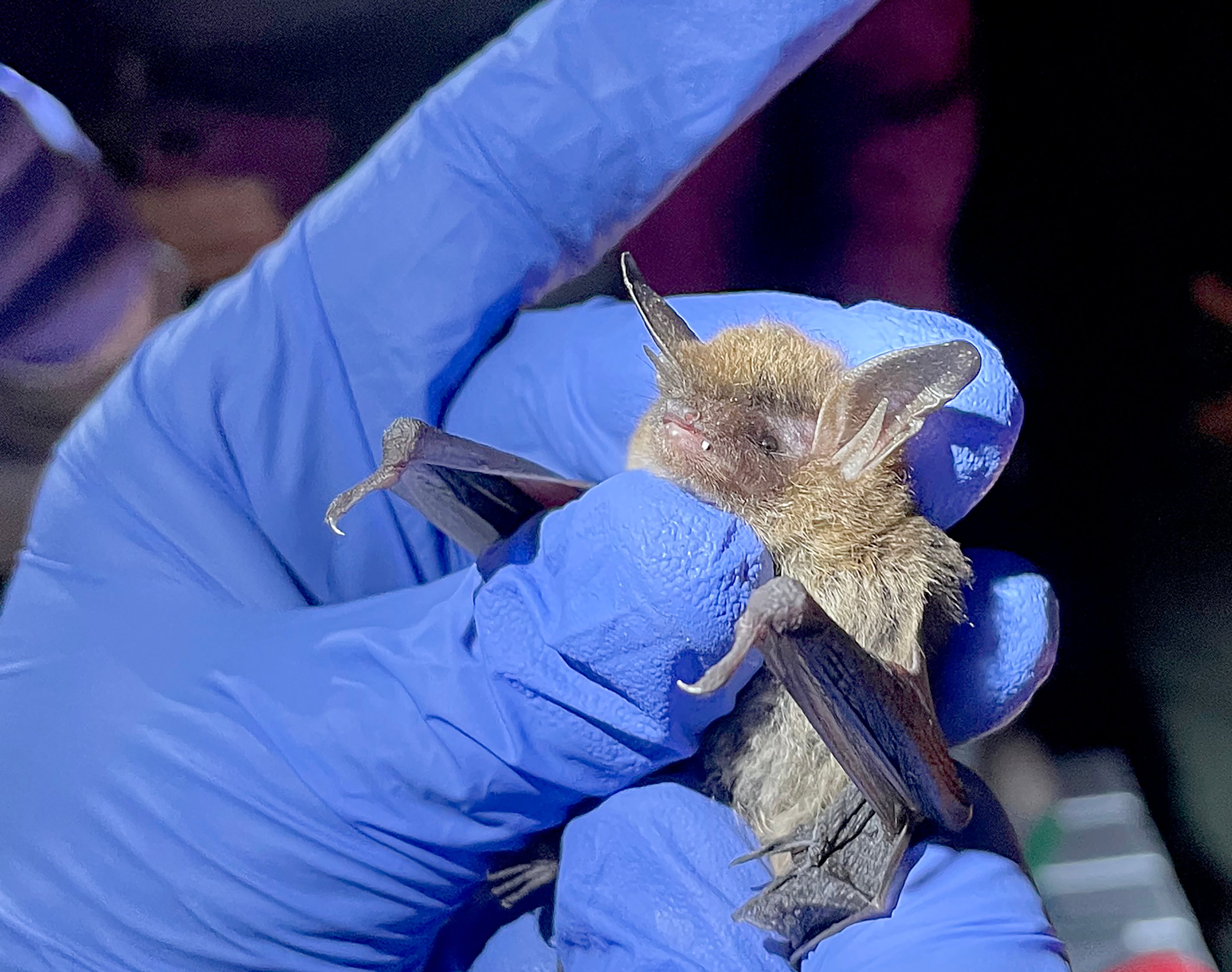By DAVID RAINER, Alabama Department of Conservation and Natural Resources
Bats are ubiquitous during the Halloween season, but these creatures deserve celebration year-round for their contribution to our sustainable food production. By eating insects by the billions, bats save U.S. agriculture as much as $3.7 billion per year in pest control. Bats also play a role in the pollination of some plants.
After Bat Week ended on Halloween, the celebration at the Alabama Department of Conservation and Natural Resources’ (ADCNR) Wildlife and Freshwater Fisheries (WFF) Division continued with the recognition of one of its biologists, Nick Sharp, for his contributions to bat research and protection in Alabama. As chair of the Alabama Bat Working Group, Sharp recently accepted the Alabama Wildlife Federation’s (AWF) Governor’s Conservation Achievement Award for Wildlife Conservationist of the Year. Sharp was also recognized individually by the Alabama Chapter of the Wildlife Society as Wildlife Biologist of the Year.
“It was extremely important to be recognized,” Amy Silvano, WFF’s Assistant Chief of the Wildlife Section. said of the AWF and Wildlife Society awards. “The Alabama Bat Working Group is a collaborative conservation effort composed of multiple agencies. These organizations and individuals collectively work toward the conservation of bats and their habitat throughout the state. The group has identified bat management practices, workshop training and they host the Bat Blitz.”
During this year’s Bat Blitz in May in southwest Alabama, the group captured a bat species, the northern long-eared bat, that was thought to have almost disappeared from the state because of white-nose syndrome (WNS), a deadly fungal disease that infects hibernating bats. On the last day of the event, one male and two pregnant female northern long-eared bats were captured, identified and later released on a Forever Wild Land Trust tract within the Perdido River Wildlife Management Area (WMA) in Baldwin County.
“The Department of Conservation and Natural Resources has been intentional about acquiring land along the Perdido River corridor to add to the land that currently encompasses the Perdido WMA,” said ADCNR Commissioner Chris Blankenship, who serves as Chairman of the Forever Wild Land Trust Board of Trustees. “The discovery of this endangered species in the area we are working to protect is further evidence of the importance of this land in eastern Baldwin County."
Although the awards were greatly appreciated, the discovery of the northern long-eared bat was the most important event of 2023 for Sharp.
“Those captures of the northern long-eared bat caused a great deal of excitement,” Sharp said. “None of us expected to catch them. For background on this, in the past few years, they have discovered populations of northern long-eared bats in coastal North Carolina and South Carolina. The reason that’s important is there are no caves in those areas. They also determined these bats were active year-round, that they weren’t going into hibernation. So, that’s important because it means they are not going into caves and being exposed to white-nose syndrome.”
Sharp said this species was one of the most common species in eastern North America. Because the population has been decimated by WNS, the northern long-eared bat was federally listed as endangered under the Endangered Species Act in 2022.
“The fact that these bats were living in these areas and not dying of white-nose syndrome created this idea that we should organize the Bat Blitz to go to coastal Alabama,” he said. “We thought it was a longshot, but we decided to try. Lo and behold, on the last night of the Bat Blitz, we made those captures. It was surprising and quite rewarding – taking a longshot effort and it is paying off. This has really good implications for this species in Alabama because there are no caves in coastal Alabama.”









